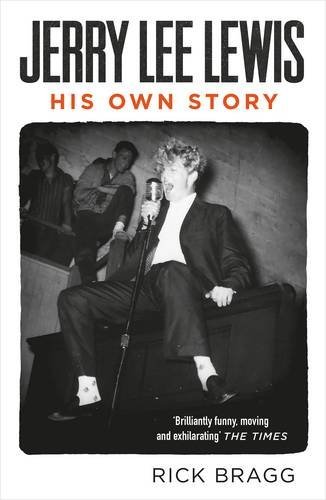What do you think?
Rate this book


512 pages, Paperback
First published September 9, 2014
"It took hold of them," Jerry Lee says now, "because it was real."
The Holy Ghost comes into a person "like a fire" he says.
"I took hold of it," he says "because it is real."
pg. 46

 . When I saw that one of my favorite authors, Rick Bragg, was writing the life story of Jerry Lee Lewis, one of Cash’s “bandmates” in the Million Dollar Quartet and fellow Sun recording star, it was only a matter of time before I read his book. In reading “Jerry Lee Lewis: His Own Story” I was certainly comparing to Hilburn’s Cash book as well as Bragg’s downhome Southern personal stories. “His Own Story” was quite a bit different from both.
. When I saw that one of my favorite authors, Rick Bragg, was writing the life story of Jerry Lee Lewis, one of Cash’s “bandmates” in the Million Dollar Quartet and fellow Sun recording star, it was only a matter of time before I read his book. In reading “Jerry Lee Lewis: His Own Story” I was certainly comparing to Hilburn’s Cash book as well as Bragg’s downhome Southern personal stories. “His Own Story” was quite a bit different from both.